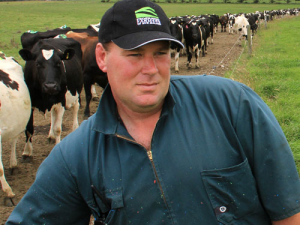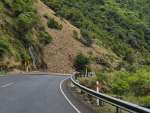Hoggard says he would be more comfortable sharing Fonterra’s spoils with farmers in Chile and Australia than with investors in Auckland.
Fonterra is not ruling out offering shares to overseas milk suppliers, as its overseas milk pool grows; of the 23 billion L of milk processed by Fonterra last year, New Zealand farmers supplied 17.5b L. The rest is collected and processed in Australia, South America, China, Sri Lanka and Europe.
Fonterra chairman John Wilson recently told a NZ Co-op business leaders’ forum that overseas milk suppliers could be allowed to own shares in the co-op.
Wilson did not rule out a co-op linkage with farmer suppliers in other countries. “The opportunity to form some sort of cooperative linkage we certainly believe is possible,” he says. “It won’t be easy – surprise, surprise – but it is possible. Those opportunities are becoming more real today than in the past.”
Hoggard points to the Dutch co-op Arla, which has expanded and is now owned by 12,500 farmers in seven countries in Northern Europe. He believes it would be a “just way” of keeping farmers involved with the co-op and as shareholders they would be loyal.
This would allow all farmer suppliers to share in each other’s pain and gain, Hoggard says.
“At our low point in payout there were high payouts for suppliers in Australia and Chile – eroding our profits, as it were. If those guys share in our pain and gain… they’re farmers like us and we have a lot in common. I’m more comfortable with farmers in Chile and Australia than with investors in Auckland.”
However, expanding ownership beyond NZ would be complicated. It would require strong support from Fonterra shareholders in NZ.
Hoggard believes milk price would be an issue. “We [would] have to calculate separate milk prices for those countries…. Each country could have individual milk price manuals.”
He says the issue of expanding the shareholder base should have been discussed during the trading among farmers (TAF) debate five years ago. Under TAF, investors can buy units; unit holders receive only economic rights to shares held in the Fonterra shareholders fund.
Speaking at the forum, Fonterra director Nicola Shadbolt said there was an appetite among overseas suppliers to own Fonterra shares, but capital could be an issue.
In her travels around the world she is often asked by farmer suppliers about the possibility of owning Fonterra shares. “The ‘belonging’ is the bit they are missing,” she says. But this also means coughing up $880,000, so there’s “a slight cost” involved.
“But if there are other ways of structuring that, the belonging can still happen at no capital cost.... Some co-ops in the Netherlands have class A and class B members. Class B members don’t have all the rights of class A members, so there are ways, but this is an evolving issue.”
Shadbolt says Fonterra needs more milk to grow the business.
“As demand for dairy grows, we need to have stickability with dairy farmers in other parts of the world. We don’t want not to have the milk.”










